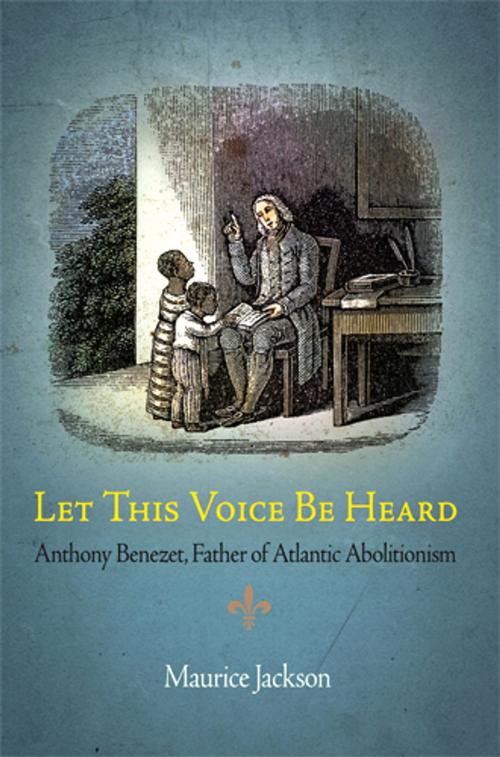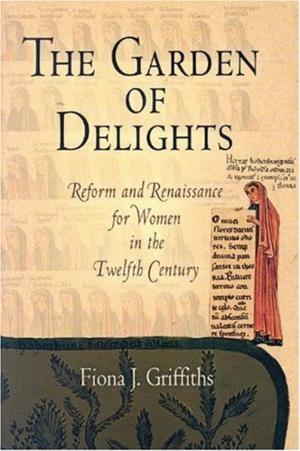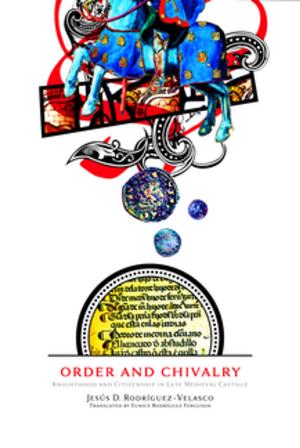Let This Voice Be Heard
Anthony Benezet, Father of Atlantic Abolitionism
Nonfiction, History, Americas, United States, Revolutionary Period (1775-1800), Biography & Memoir, Historical| Author: | Maurice Jackson | ISBN: | 9780812202342 |
| Publisher: | University of Pennsylvania Press, Inc. | Publication: | November 24, 2010 |
| Imprint: | University of Pennsylvania Press | Language: | English |
| Author: | Maurice Jackson |
| ISBN: | 9780812202342 |
| Publisher: | University of Pennsylvania Press, Inc. |
| Publication: | November 24, 2010 |
| Imprint: | University of Pennsylvania Press |
| Language: | English |
Anthony Benezet (1713-84), universally recognized by the leaders of the eighteenth-century antislavery movement as its founder, was born to a Huguenot family in Saint-Quentin, France. As a boy, Benezet moved to Holland, England, and, in 1731, Philadelphia, where he rose to prominence in the Quaker antislavery community.
In transforming Quaker antislavery sentiment into a broad-based transatlantic movement, Benezet translated ideas from diverse sources—Enlightenment philosophy, African travel narratives, Quakerism, practical life, and the Bible—into concrete action. He founded the African Free School in Philadelphia, and such future abolitionist leaders as Absalom Jones and James Forten studied at Benezet's school and spread his ideas to broad social groups. At the same time, Benezet's correspondents, including Benjamin Franklin, Benjamin Rush, Abbé Raynal, Granville Sharp, and John Wesley, gave his ideas an audience in the highest intellectual and political circles.
In this wide-ranging intellectual biography, Maurice Jackson demonstrates how Benezet mediated Enlightenment political and social thought, narratives of African life written by slave traders themselves, and the ideas and experiences of ordinary people to create a new antislavery critique. Benezet's use of travel narratives challenged proslavery arguments about an undifferentiated, "primitive" African society. Benezet's empirical evidence, laid on the intellectual scaffolding provided by the writings of Hutcheson, Wallace, and Montesquieu, had a profound influence, from the high-culture writings of the Marquis de Condorcet to the opinions of ordinary citizens. When the great antislavery spokesmen Jacques-Pierre Brissot in France and William Wilberforce in England rose to demand abolition of the slave trade, they read into the record of the French National Assembly and the British Parliament extensive unattributed quotations from Benezet's writings, a fitting tribute to the influence of his work.
Anthony Benezet (1713-84), universally recognized by the leaders of the eighteenth-century antislavery movement as its founder, was born to a Huguenot family in Saint-Quentin, France. As a boy, Benezet moved to Holland, England, and, in 1731, Philadelphia, where he rose to prominence in the Quaker antislavery community.
In transforming Quaker antislavery sentiment into a broad-based transatlantic movement, Benezet translated ideas from diverse sources—Enlightenment philosophy, African travel narratives, Quakerism, practical life, and the Bible—into concrete action. He founded the African Free School in Philadelphia, and such future abolitionist leaders as Absalom Jones and James Forten studied at Benezet's school and spread his ideas to broad social groups. At the same time, Benezet's correspondents, including Benjamin Franklin, Benjamin Rush, Abbé Raynal, Granville Sharp, and John Wesley, gave his ideas an audience in the highest intellectual and political circles.
In this wide-ranging intellectual biography, Maurice Jackson demonstrates how Benezet mediated Enlightenment political and social thought, narratives of African life written by slave traders themselves, and the ideas and experiences of ordinary people to create a new antislavery critique. Benezet's use of travel narratives challenged proslavery arguments about an undifferentiated, "primitive" African society. Benezet's empirical evidence, laid on the intellectual scaffolding provided by the writings of Hutcheson, Wallace, and Montesquieu, had a profound influence, from the high-culture writings of the Marquis de Condorcet to the opinions of ordinary citizens. When the great antislavery spokesmen Jacques-Pierre Brissot in France and William Wilberforce in England rose to demand abolition of the slave trade, they read into the record of the French National Assembly and the British Parliament extensive unattributed quotations from Benezet's writings, a fitting tribute to the influence of his work.















